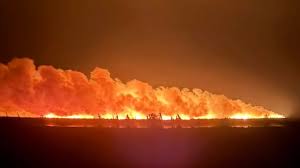Newfoundland Fires: A 2023 Crisis Unfolds

Introduction
The wildfires currently ravaging Newfoundland are a stark reminder of the increasing threat posed by climate change and environmental instability. As the province grapples with unprecedented fires this season, the situation has prompted evacuation orders and emergency response efforts, capturing the attention of both local residents and national authorities. The implication of these fires stretches beyond immediate impacts; it raises concerns about future wildfire risks and the capacity of communities to withstand such natural disasters.
Current Situation
In June 2023, Newfoundland experienced a series of wildfires, primarily due to a combination of dry weather and high temperatures. Over 20 active fires were reported across the island, with significant blazes located in the Avalon Peninsula and Central Newfoundland. Authorities announced mandatory evacuation orders for affected communities, warning residents to be prepared for potential long-term displacement.
The provincial government mobilized resources to combat the fires, deploying firefighting teams from other regions and even seeking assistance from the military. This year alone, the scale of the fires has been deemed one of the most severe in the history of Newfoundland, raising alarms about the escalating frequency and intensity of similar incidents. By mid-June, more than 2,000 hectares of land had already been scorched.
Impacts and Responses
Local officials have reported immense damage to wildlife habitats, air quality deterioration, and disruptions in local economies. Moreover, the health of residents has been jeopardized due to smoke inhalation and associated respiratory issues. As part of emergency measures, authorities provided shelters and support services to displaced families, ensuring access to necessities.
Environmental scientists and climate experts have warned that with rising global temperatures, such events may become increasingly common. The wildfire crisis in Newfoundland serves as a crucial point for discussions on climate resilience and sustainable practices, pushing for meaningful policy changes at both provincial and national levels.
Conclusion
The Newfoundland fires are not merely a seasonal occurrence but a harbinger of future challenges posed by climate change. As communities begin to recover, attention must shift towards building resilience against such disasters. This ongoing crisis underscores the importance of investing in sustainable land management, early warning systems, and public education to mitigate the impacts of wildfires. The lessons learned from this year’s events will be essential in drafting a comprehensive strategy to protect both the environment and residents from this growing threat.









